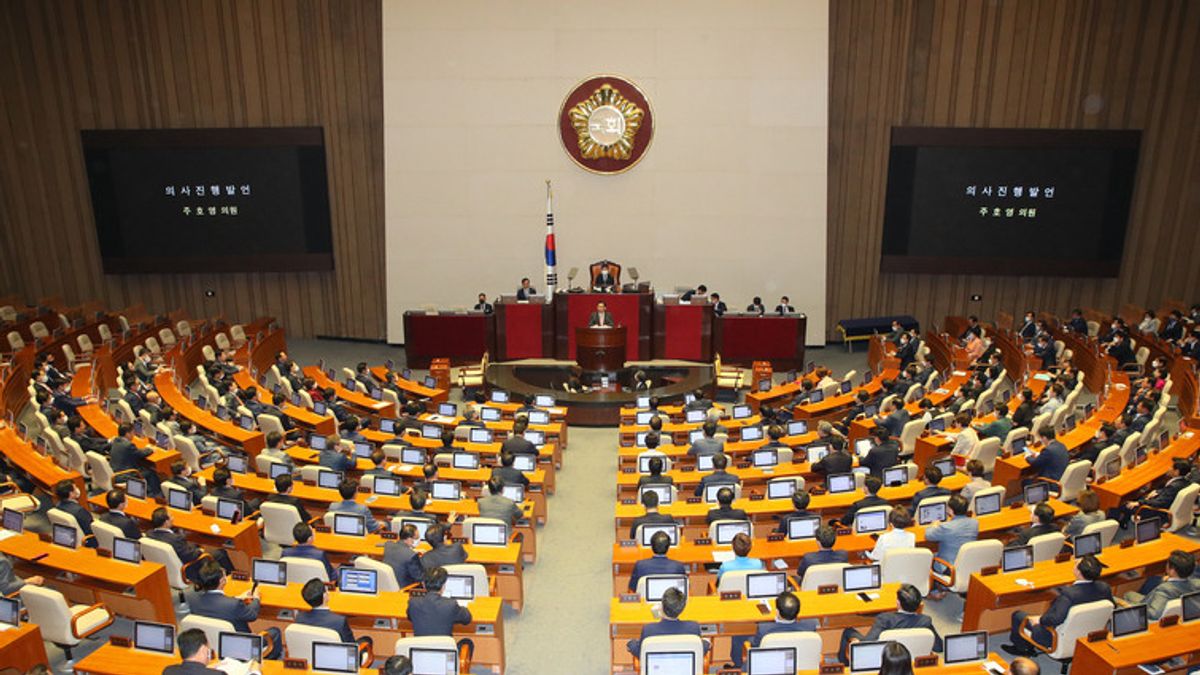JAKARTA - Lawmakers in South Korea settled a lengthy political battle on September 30 and blocked the ruling party's move to delay the implementation of a controversial crypto tax law.
In a meeting on Sept. 26 that was just reported yesterday, Finance Minister Hong Nam-ki and the main Democratic lawmaker of the National Assembly, South Korea's legislature, were said to have reached a final agreement that the crypto tax would be enforced as planned.
The Korean crypto tax will tax crypto profits in a similar way to traditional stocks. It will levy a 20% tax on revenue generated by crypto transactions of more than 2.5 million Korean won (Rp 30 million).
The majority Democratic Party in the National Assembly is seeking to pass an amendment to the tax law that would delay the tax until 2023. Democratic lawmaker Kim Byung-ook proposed in an open session on September 15 that a capital gains tax on cryptocurrencies should be rolled out alongside a similar tax in September. stocks in 2023, not 2022.
While the ruling majority party should theoretically have the numbers to pass the amendments, they have faced strong resistance from Finance Minister Hong, who holds significant power and has served in many of the country's top positions, including as Prime Minister.
Minister Hong has repeatedly stated throughout 2021 that the tax will come into effect as originally planned, going so far as to say that a crypto tax is inevitable for 2022.
At least twice since May, Minister Hong has reiterated his firm stance against the ruling Democratic Party that the crypto tax would come into effect without delay.
While a win for Hong, some crypto industry insiders fear the new tax will make trading volumes and overall interest in the industry decline.
However Jun Hyuk Ahn, an analyst with the Korean crypto market, feels that there is no reason to be concerned about the decline in interest. “I don't believe taxation will lead to deterrence in the crypto market in Korea. We've seen what happens in the United States, and it won't be much different here," Ahn said, as quoted by Cointelegraph.
The new law comes on top of new regulations on cyber security that saw the recent exit of the market from many Korean exchanges. Only 29 crypto exchanges met the September 24 deadline to comply.
Of those 29, only four obtained real name bank account partnerships with domestic banks which gave them the legal right to continue offering KRW trading pairs. The four are Upbit, Bithumb, Coinone, and Korbit. Another 25 exchanges have Internet Security Management System (ISMS) certification and will offer crypto-to-crypto trading pairs.
Starting today, Upbit will require every user trading over 1 million KRW (Rp 12 million) to undergo KYC, with all users trading any amount also required to do so by October 8. The new KYC process is intended to bring exchanges in line with anti-money laundering procedures.
Korean exchanges, such as Upbit, previously used real-name bank accounts and their Kakaotalk messaging app as a de facto KYC mechanism. Bithumb, Coinone, and Korbit are expected to follow Upbit in requiring further KYC from their users.
The English, Chinese, Japanese, Arabic, and French versions are automatically generated by the AI. So there may still be inaccuracies in translating, please always see Indonesian as our main language. (system supported by DigitalSiber.id)













